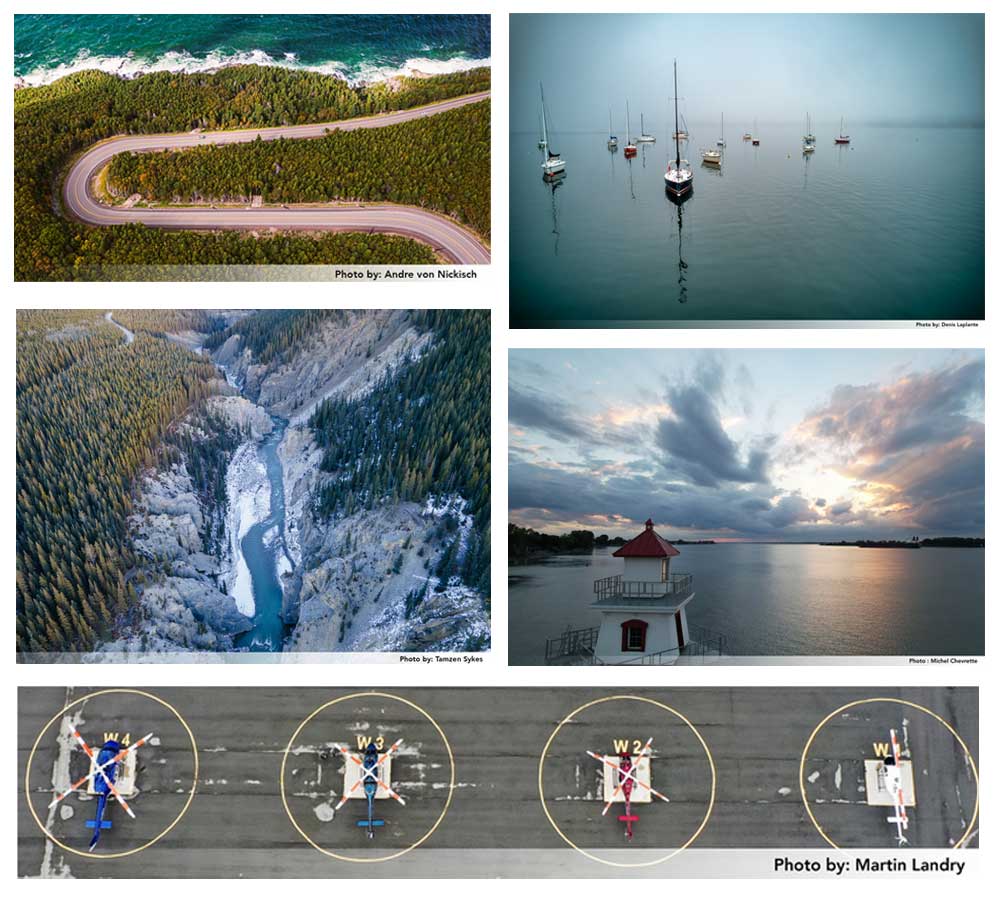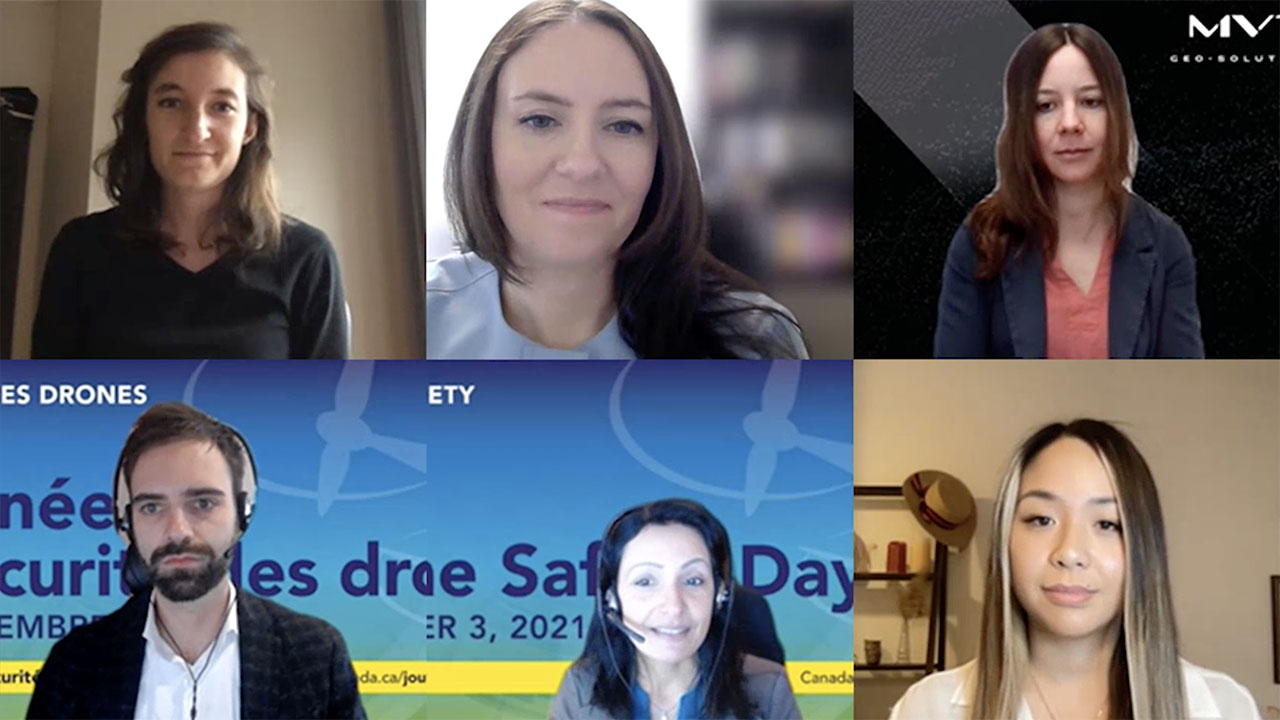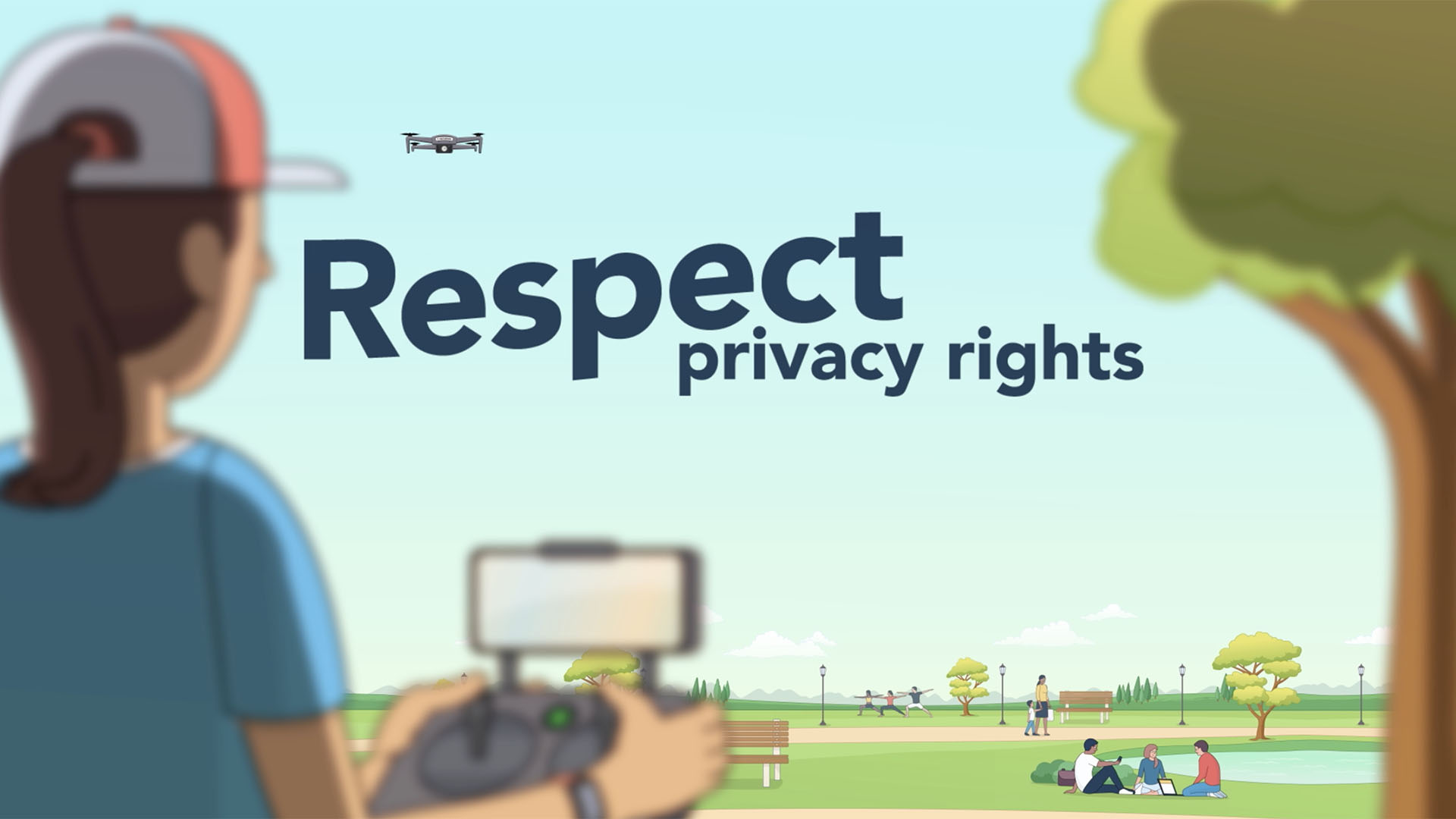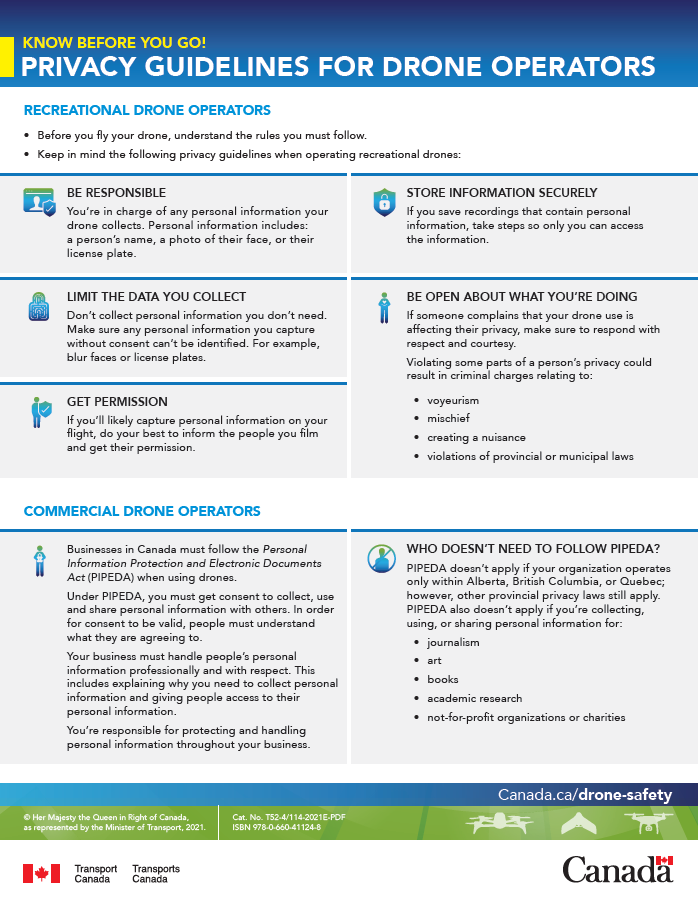On December 3, 2021, join us in celebrating Drone Safety Day! Drone Safety Day is aimed at sharing drone safety success stories and highlighting the interesting and innovative ways drones are used across Canada. It is also an opportunity to educate Canadians on key drone safety issues and steps drone pilots can take to protect public safety.
How to participate in Drone Safety Day
Here are ways you can celebrate Drone Safety Day this year:
Fly your drone safely
It’s important that you fly your drone responsibly to avoid harming others. Before you fly, understand the rules you need to follow and review our safety tips.
Remember, drone pilots must carry a valid drone pilot certificate and only fly drones that are marked and registered.
Check out the winners of our Drone Safety Day Photo Challenge
We challenged Canadians to submit their original drone photography, and they did not disappoint! Participants were asked to describe how they ensured drone safety while capturing their photo.
Congratulations to our #DroneSafetyDay Photo Challenge winners!
Watch our “Women in Drone Safety” Event
Members of the Remotely Piloted Aircraft Systems (RPAS) Task Force had a great conversation with some prominent Canadian women whose work touch on various aspects of drone safety.
Featuring: Anne-Sophie Riopel-Bouvier (EXO Tactik Air Support), Kathryn McCulloch (Dentons), Maude Pelletier (MVT Geo-Solutions), and Sharon Cheung (COPA).
Watch the event. If you liked it, share on your social media using the hashtag #DroneSafetyDay!
New educational materials
Privacy and drones
Whether you fly drones recreationally or professionally, you are responsible for knowing the privacy laws that apply to your drone use. Watch this video to learn more and download the infographic.
Privacy guidelines for drone users
Know before you go!
Privacy guidelines for drone operator
(PDF 973 Kb)
Text description
Know before you go!
Privacy guidelines for drone operators
Recreational drone operators
Before you fly your drone, understand the rules you must follow.
Keep in mind the following privacy guidelines when operating recreational drones:
Be responsible
You’re in charge of any personal information your drone collects. Personal information includes: a person’s name, a photo of their face, or their licence plate.
Limit the data you collect
Don’t collect personal information you don’t need. Make sure any personal information you capture without consent can’t be identified. For example, blur faces or licence plates.
Get permission
If you’ll likely capture personal information on your flight, do your best to inform the people you film and get their permission.
Store information securely
If you save recordings that contain personal information, take steps so only you can access the information.
Be open about what you’re doing
If someone complains that your drone use is affecting their privacy, make sure to respond with respect and courtesy.
Violating some parts of a person’s privacy could result in criminal charges relating to:
-
voyeurism
-
mischief
-
creating a nuisance
-
violations of provincial or municipal laws
Commercial drone operators
Businesses in Canada must follow the Personal Information Protection and Electronic Documents Act (PIPEDA) when using drones.
Under PIPEDA, you must get consent to collect, use and share personal information with others. In order for consent to be valid, people must understand what they are agreeing to.
Your business must handle people’s personal information professionally and with respect. This includes explaining why you need to collect personal information and giving people access to their personal information.
You’re responsible for protecting and handling personal information throughout your business.
Who doesn’t need to follow PIPEDA?
PIPEDA doesn’t apply if your organization operates only within Alberta, British Columbia, or Quebec; however, other provincial privacy laws still apply. PIPEDA also doesn’t apply if you’re collecting, using, or sharing personal information for:
-
journalism
-
art
-
books
-
academic research
-
not-for-profit organizations or charities
Forest fires and drones
While drones can be used by emergency response teams for fire suppression, unauthorized drone use near forest fires increases the likelihood of a midair collision with firefighting aircraft, forcing response teams to ground their operations and putting lives at risk. Download the infographic.
Know before you go!
Forest fires and drones
(PDF 926 Kb)
Text description
Know before you go!
Forest fires and drones
The airspace around and over a forest fire is closed to all aircraft, including drones, except those directly involved in fighting fires.
While some emergency response teams use drones to fight forest fires, flying a drone over or near a forest fire without permission increases the risk that a firefighting aircraft will collide with the drone. If a drone is spotted in the area, emergency response teams need to ground their operations, which puts lives at risk.
Canadian law requires all drone pilots to fly according to the Canadian Aviation Regulations, which state that only someone with permission can fly a drone over a forest fire, or within 9.3 kilometres (5 NM) of a forest fire.
You could face serious penalties, including fines and/or jail time, if you break the rules.
Before flying a drone in the summer months, make sure there are no smoke plumes or active forest fires nearby. Check local sources of information, such as the fire management agency website (English only) for your region, and NAV Drone, which provides real-time access to Notices to Airmen (NOTAMs) and restricted airspace information.
Watch our Drone Safety Day webinar series
Check out these webinars promoting drone safety and showcasing the many uses of drones across sectors and industries.
Share your stories
Drone safety is everyone’s responsibility. To celebrate Drone Safety Day, tell us what drone safety means to you. Share a photo, post, or story to your social media platforms with the hashtag #DroneSafetyDay.
And check out Transport Canada’s Twitter, Facebook and Instagram to see what drone safety means to other Canadians!
Be a Drone Safety Day partner!
Want to be involved in our 2022 Drone Safety Day? Please complete the Expression of Interest (EOI) form.



